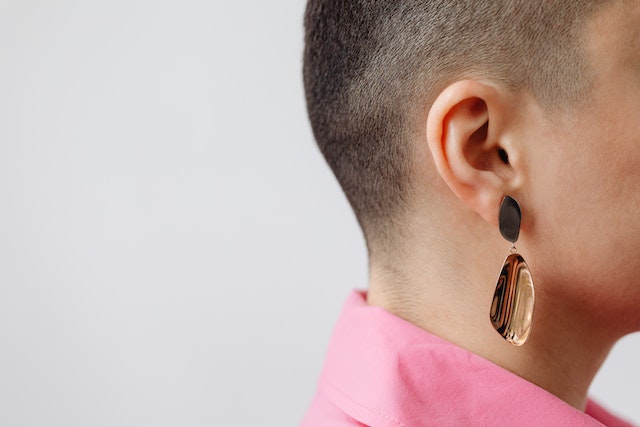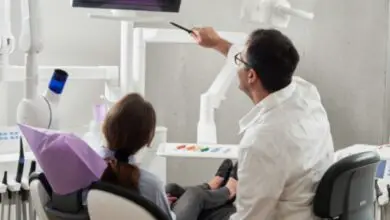Main Types and Causes of Hearing Loss

Temporary hearing loss can be an annoyance, but if issues such as difficulty in hearing others’ speech are prolonged, it can become a source of significant anxiety, especially when you are unsure as to what the cause might be.
This article outlines some types and causes of hearing loss and suggested steps you can take to help improve your ear health. However, note it is not a substitute for clinical advice and any concerns about your hearing should be addressed with a licensed healthcare practitioner.
Signs of Hearing Loss
Typically, hearing loss is a gradual process that may persistently increase over time, although in some cases, it can be sudden or severe. Some signs of hearing loss include ringing in the ears (tinnitus) or ear pain in addition to general difficulty hearing. Other symptoms may indicate more serious conditions:
- Weakness
- Numbness
- Headaches
- Rapid breathing
- Stiff neck
- Vomiting
- Light sensitivity
- Mental agitation
- Low body temperature or chills
Symptoms like these can be related to life-threatening illnesses such as meningitis. If you experience any of the above symptoms alongside hearing loss, seek medical attention as soon as possible.
Types of Hearing Loss
Hearing loss can have multiple causes. The three most common kinds are:
SNHL (Sensorineural Hearing Loss)
Typically, SNHL is the result of damage to nerve pathways in the brain or inner ear. This type can make even loud, clear noises challenging to hear. Some potential causes include:
- Exposure to environments, such as noisy working conditions or loud music
- Acoustic neuroma (a non-cancerous tumor affecting the inner ear
- Diseases affecting the inner ear such as Ménière’s Disease, which also affects balance
- Infections affecting the ear nerves, such as meningitis, mumps, scarlet fever or measles
- Head injury caused by trauma to the head or skull
- Presbycusis (SNHL due to the deterioration of inner-ear and neural cells as part of aging)
- Certain birth defects
- Hereditary illnesses
- Some medications, especially ototoxic medications. If you are concerned about your medication affecting your hearing, see your doctor.
Conductive Hearing Loss
Conductive hearing loss can make it hard to hear soft or muffled sounds. This form of hearing loss occurs when sound cannot be transmitted from the outer ear to the bones and eardrum in the middle ear.
Unlike SNHL, conductive hearing loss may not be permanent, however, if it is caused by an infection, seek medical advice as untreated ear infections may lead to permanent damage and scar tissue, which can further impede hearing. Potential causes may include:
- Waxy build-up in the ear, which can result from damaged, narrow or hairy ear canals
- Otitis externa, or inflammation of the inner ear canal. As repeated exposure to water can worsen inflammation in this area, this is often referred to as “swimmer’s ear”
- A foreign object lodged in the ear
- Allergies (increased mucus production from which can also affect the ears)
Conductive hearing loss can be treated using a number of methods including antibiotics or a cochlear implant inserted under the skin just below the ear. This is a small machine which turns sound vibration into electrical signals which are then translated by your brain into sound.
Mixed Hearing Loss
A third type is mixed hearing loss, where both sensorineural and conductive hearing loss occur simultaneously due to damage to both the inner and middle or outer ear.
While less permanent forms of hearing loss such as conductive hearing loss can be treated, sensorineural hearing loss is permanent, so in either SNHL or mixed hearing loss hearing cannot be restored. However, it may be improved using a mix of hearing aids, medication or surgery.
You can take preventative measures to avoid hearing loss by avoiding extensive exposure to high volumes, taking regular hearing tests and using safety equipment, but if you are already experiencing hearing loss issues, help is available.
Treatment Options
Some treatments can be carried out at home, but before attempting any of them yourself, speak with your doctor first: inserting objects such as (ear syringes or wax softeners) without proper care can lead to pain, injury and potential worsening of your condition. Your doctor may also refer you to your local hearing specialists to discuss treatment options. If you are based in Saskatoon, Saskatchewan, visit Hearcanada today.
In addition to assessments and advice, you’ll find a range of services such as hearing aid maintenance, counseling on a variety of hearing-related issues, finance advice and treatments like ear wax removal. As part of their commitment to sustainability, they also offer rechargeable hearing aids, and you can also donate hearing aids and hearing aid batteries to be recycled.





